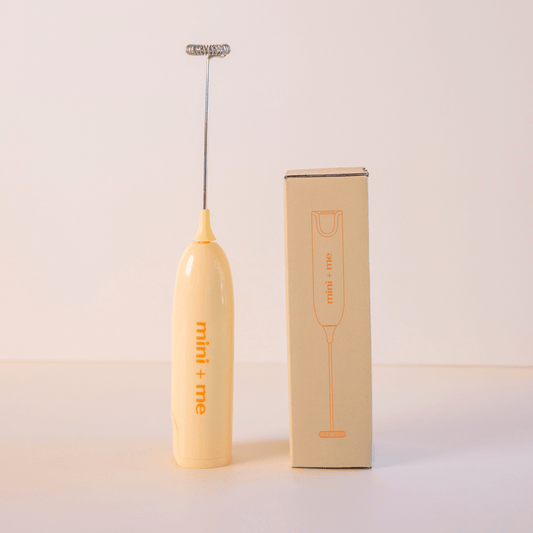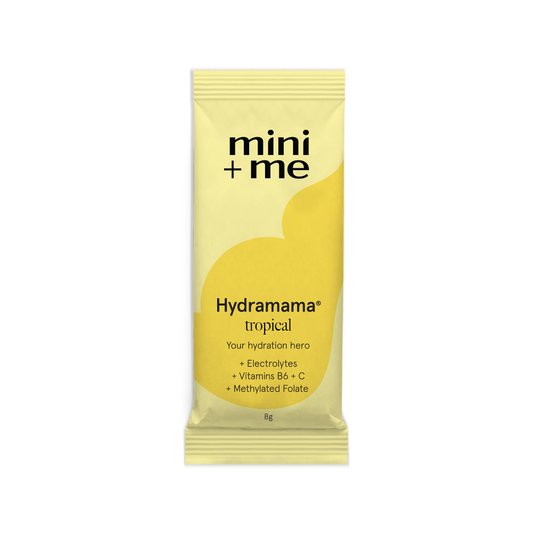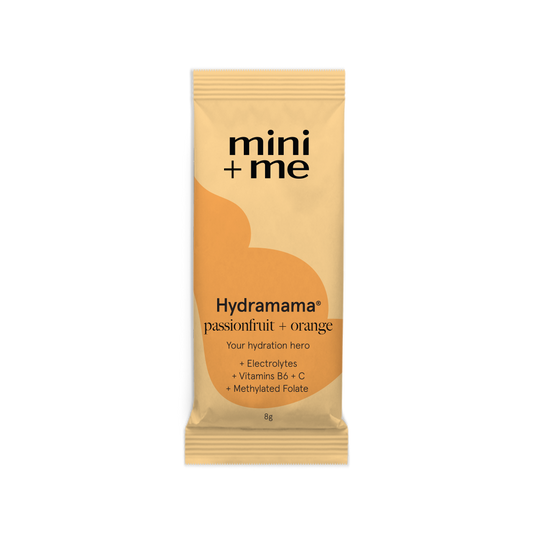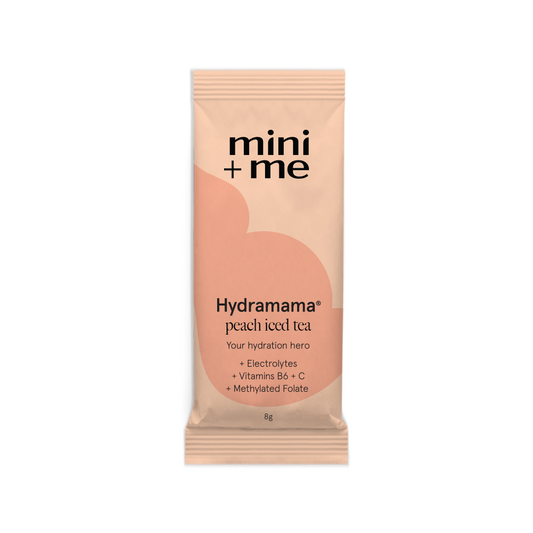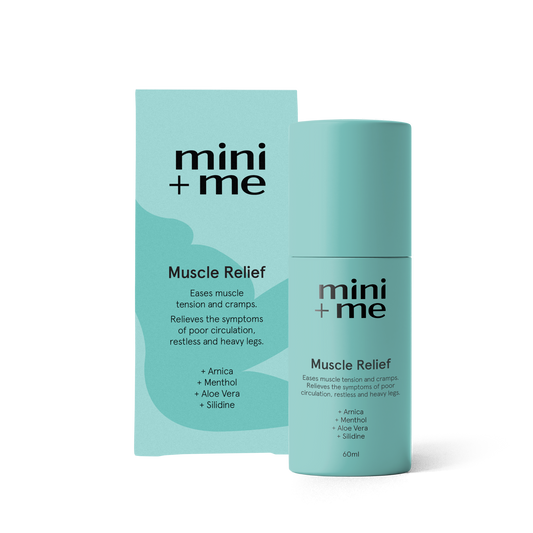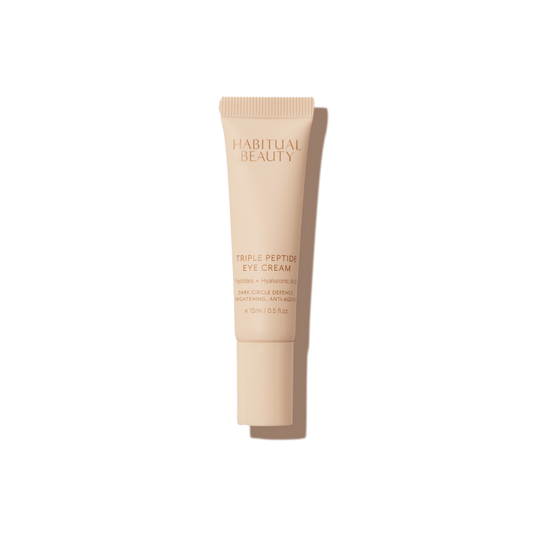Breastfeeding is thirsty work, literally. When you’re feeding your baby around the clock, your body is not only creating liquid gold, it’s also giving away hundreds of millilitres of fluid each day. While breast milk is made up of around 87–90% water, many mums don’t realise how important hydration is for both their milk supply and their own wellbeing.
In this guide, we’ll walk through how much water breastfeeding mums need, how to spot signs of dehydration, and simple ways to stay on top of your fluid intake without adding stress to your already-full plate.
Why Hydration Matters When You’re Breastfeeding
Breastfeeding increases your daily fluid needs. On average, breastfeeding mothers lose around 700 – 800mL of water each day through milk production in the first six months postpartum. That’s on top of your usual hydration needs. Without replenishing that loss, it’s easy to become dehydrated - especially when you’re busy, tired, or just not feeling thirsty.
Breast Milk Is Mostly Water: Around 90% of breast milk is water, which helps keep your baby hydrated with every feed.
Your Body Is Working Hard: To keep up with this, breastfeeding mums need more water than usual. Research shows that exclusively breastfeeding mothers tend to have the lowest water balance, often ending the day with a fluid deficit of around 475mL.
Guidelines at a Glance:
• Australian guidelines: ~2.5 litres/day
• European guidelines: ~2.7 litres/day
• US guidelines: Up to 3.8 litres/day
It’s not just about hitting a number. Your hydration needs can vary day to day depending on the weather, your activity levels, and how often your baby is feeding.
Signs of Dehydration While Breastfeeding
Sometimes the signs of dehydration can sneak up on you, especially if you’re focused on baby care, juggling visitors, or simply forgetting to drink enough.
Common Signs to Watch For:
• Feeling very thirsty
• Headaches
• Fatigue or tiredness
• Muscle cramps
• Dizziness or lightheadedness
• Dry mouth and lips
• Dark yellow wee or going less often
• Constipation
• Nausea
• In more severe cases, a reduction in milk supply
While mild dehydration usually won’t affect your milk supply, more severe dehydration can impact both milk volume and your overall wellbeing.
How Dehydration Can Affect You (and Your Baby)
Your Milk Supply: Your body is clever - it will prioritise milk production even if you’re a little low on fluids. But if dehydration becomes more severe, your supply might start to drop, and the balance of nutrients in your milk may be affected.
Your Wellbeing: Dehydration can make you feel foggy, irritable and tired, none of which is helpful when you’re looking after a baby. It may also make it harder to focus on feeding, settling, and bonding.
Your Baby’s Feeds: If your milk supply drops due to dehydration, your baby may not get enough at the breast, especially if they’re going through a growth spurt or feeding more frequently.
How Much Water Do Breastfeeding Mums Need?
There’s no one-size-fits-all answer, but here’s the general rule:
Drink to thirst - but make sure water is always within reach.
Most mums need around 2.7 – 3.8 litres of fluid per day, including water, tea, juice, and the water found in foods like fruit and vegetables.
Quick Hydration Tips:
• Drink during every feed: Keep a full water bottle next to your nursing chair or in your nappy bag.
• Keep it accessible: Having water within arm’s reach can be a game-changer.
• Include hydrating foods: Watermelon, cucumber, oranges, strawberries and soups all count!
• Add electrolytes: Try Hydramama - it’s a sugar-free electrolyte drink with added B6, C, and magnesium to support hydration, energy and recovery.
• Use gentle reminders: Set a phone alert, or tie drinking water to another habit (like after nappy changes).
• Track your wee: Pale yellow = hydrated. Dark = time for a top-up.
• Be mindful of caffeine: While coffee and tea do count toward your fluid intake, too much can have a diuretic effect.
What to Do If You’re Dehydrated
If you’re feeling any signs of dehydration, start with small, frequent sips of water. If you’ve been struggling to stay hydrated (especially during hot weather, illness, or during cluster feeding), consider a hydration solution with electrolytes to help replenish lost salts as well as fluids.
Tip: Hydramama is a formulated hydration solution that’s safe for use during breastfeeding, and often used in hospitals for mums who need an extra hydration boost.
If you’re worried about low milk supply or ongoing symptoms, chat with your GP, midwife, or lactation consultant to make sure you’re getting the support you need.
The Takeaway
Hydration doesn’t need to be another thing on your to-do list, it just needs a bit of awareness and a few helpful habits. Keep water nearby, listen to your thirst, and don’t ignore early signs of dehydration. Staying well-hydrated helps you feel better, supports your milk supply, and ensures your baby keeps getting everything they need with every feed.
Cart is Empty
Your Cart is Empty
- Choosing a selection results in a full page refresh.
- Opens in a new window.





